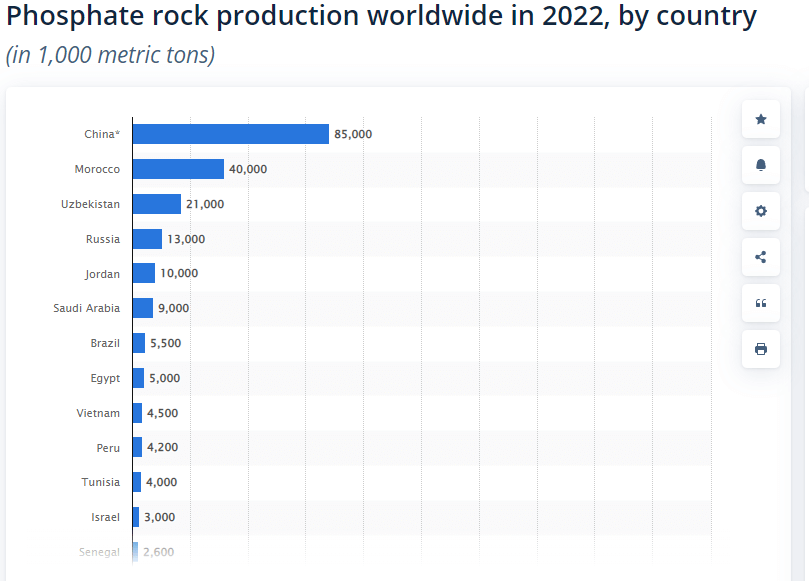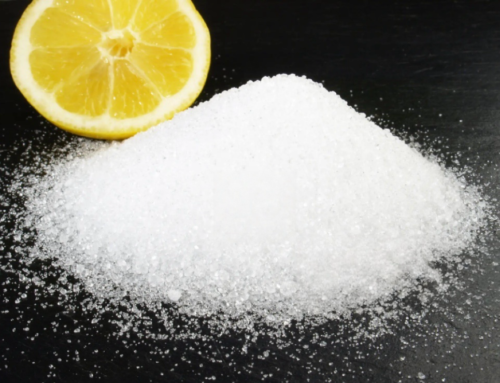Phosphates are essential minerals that are used in various industries, including agriculture, food production, and manufacturing. While many countries around the world produce phosphates, some countries are particularly renowned for their vast reserves and high-quality deposits. In this article, we will explore which country is known for phosphates and why.
China: A Major Player in the Global Phosphate Market
China is another major player in the global phosphate market, with an estimated 3.7 billion metric tons of reserves. The country’s phosphate industry has grown rapidly in recent years, driven by increasing demand for fertilizers and other phosphate-based products.
China’s phosphate production is mainly concentrated in the Yunnan and Guizhou provinces, where large-scale mines produce high-quality rock phosphate. However, the industry has faced challenges in recent years, including declining reserves and increasing environmental regulations.
To address these challenges, China has been investing in foreign mines, particularly in Africa. The country has also been developing new technologies and practices to improve efficiency and reduce its environmental impact.
Morocco: The World’s Largest Phosphate Producer
Morocco is the largest producer of phosphates in the world, with an estimated 50 billion metric tons of phosphate rock reserves. The country’s phosphate industry is dominated by the Office Cherifien des Phosphates (OCP), a state-owned mining company that controls the majority of the country’s phosphate production and exports.
The OCP has been investing heavily in expanding its operations in recent years, with plans to increase its annual production capacity to 47 million metric tons by 2025. The company is also focusing on developing new technologies to improve efficiency and reduce its environmental impact.
However, Morocco’s phosphate mining practices have come under criticism for their impact on the environment. The mining process involves extracting large amounts of phosphate rock from the ground and processing it using chemicals and water, leading to soil erosion, water pollution, and other environmental hazards.
Despite these concerns, Morocco’s phosphate industry remains critical to the country’s economy, accounting for around 10% of its GDP and providing employment for thousands of people.
United States: A History of Phosphate Mining
The United States has a long history of phosphate mining, with significant deposits found in Florida, North Carolina, and other states. However, the industry has faced criticism for its impact on the environment, particularly in Florida where phosphate mining has led to pollution and habitat destruction.
Despite these concerns, the US remains a significant producer of phosphates, with an estimated 1.5 billion metric tons of reserves. The country’s phosphate industry is dominated by a few large companies, including Mosaic and PhosAgro.
In recent years, the US phosphate industry has faced increasing competition from other countries, particularly Morocco and China. To remain competitive, US companies have been investing in new technologies and exploring alternative sources of phosphate rock, such as recycled materials.
Other Countries with Significant Phosphate Reserves
Other countries with significant phosphate reserves include Tunisia, Jordan, South Africa, and Australia. Tunisia is the second-largest phosphate producer in Africa, with an estimated 5 billion metric tons of reserves. Jordan is home to some of the highest-quality phosphate reserves in the world, with an average grade of 30% P2O5. South Africa is a significant producer of phosphate rock, but its reserves are relatively low-grade and not suitable for most fertilizer applications. Australia is home to the largest known phosphate deposit in the Southern Hemisphere, located at Phosphate Hill in Queensland.
Phosphates are critical minerals that play a vital role in various industries around the world.




